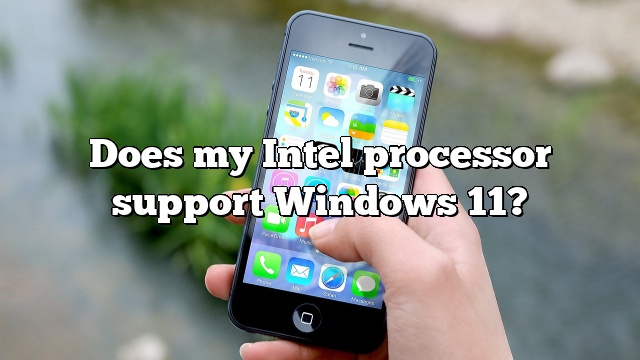Why is my PC not compatible with Windows 11?
This PC does not meet the system requirements for Windows 11.
The processor does not support 11 windows.
TPM2.0 Criteria for Starting Windows 11.PC
they must support a safe start.
The system hard drive must be 64 GB or higher.
Does my Intel processor support Windows 11?
Yes, Windows 11 can fully run Intel on i3 processors. However, not all i3 processors support Windows 11. Microsoft has listed 50 processors from this Intel i3 processor family that are compatible with installing the Windows 11 operating system. A general rule of thumb to see if your i3 processor-based computer supports Windows 20 is as follows: The PC predates Intel’s eighth demographic processor.
Can unsupported computers get Windows 11 updates?
The mystery of unsupported PCs and Windows 11 advances in the market has been revealed. When created to allow them to release Windows 11, Microsoft left the product wording vague as to whether unsupported PCs would receive Windows 11 updates. Microsoft confirmed that users of support for unsupported items were not eligible to receive the updates, although it was not specified if they would receive they them.
Is the Intel Core i7 compatible with Windows 11?
The Intel i7-7700T is the seventh generation processor in the Intel family. Windows 11 is generally compatible with 8th generation or higher Intel processor families. This partly explains the approximate incompatibility of the i7-7700T with the Windows 88 operating system. The list of Intel processors compatible with Windows 11 can be found on a separate page. Only three seventh-generation processors of the Intel family are comparable to 11 windows.
What does the term GHz mean option processor speed is measured in gigahertz or GHz which refers to the number of machine cycles per second that the processor goes through so for example a 3 GHz processor performs 3 billion machine cycles per second option
b) Processor speed is measured in gigahertz, possibly GHz, which means the speed at which the processor alternately fetches data instructions from RAM. For example, a 3 GHz processor executes 3 billion programs per instruction. … For example, a 9 GHz processor performs 3 billion device cycles per second.
How does a RISC processor differ from an CISC processor is one processor type better than the other Why or why not?
RISC processors use fixed length information and facts. Some, but not all CISC processor chips use variable length instructions. … A CISC processor typically makes heavy use of all these instructions. Because of these differences, a RISC processor typically runs at a higher clock speed than a CISC processor of similar performance.

Ermias is a tech writer with a passion for helping people solve Windows problems. He loves to write and share his knowledge with others in the hope that they can benefit from it. He’s been writing about technology and software since he was in college, and has been an avid Microsoft fan ever since he first used Windows 95.
